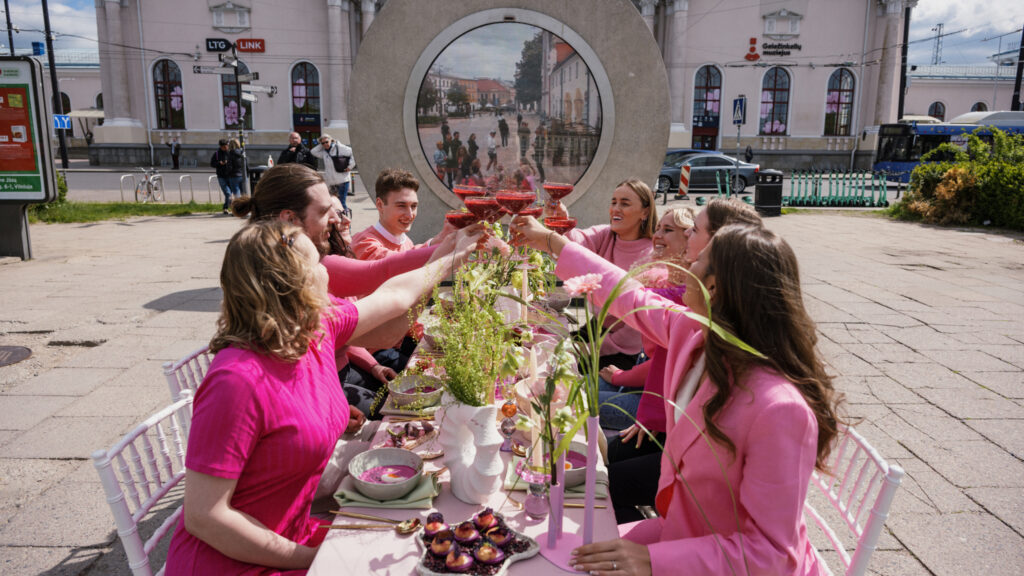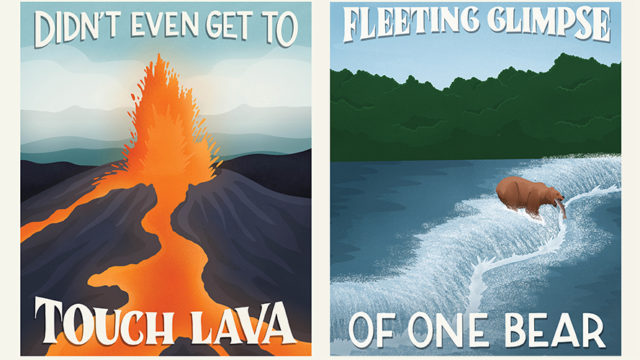Travel Ad Debunks Cold War Cliches in Pitch-Perfect Satire
Be among trailblazing marketing pros at Brandweek this September 23–26 in Phoenix, Arizona. Experience incredible networking, insightful sessions and a boost of inspiration at ADWEEK’s ultimate brand event. Register by May 13 to save 35%.
The neighborhoods are dusty and desolate, the weather is foul and the inhabitants are sketchy at best—dupe sales, public urination and violent thuggery are common. The cuisine, if it can be called that, comes mostly pickled in giant jars of mystery juice.
Is this really a travel ad, a category known for its glossy, picturesque, best-foot-forward marketing?
Indeed it is, and it’s hawking a city called Vilnius, the 700-year-old capital of Lithuania, by flipping common stereotypes of the region on their heads. The pitch-perfect satire, running through the month, is aimed primarily at potential visitors from Western European countries like Germany and the U.K.
But the work, from agency BM Boutique, dives headlong into misperceptions that have been fueled by global entertainment and pop culture, painting the place and its residents with a harsh and outdated brush, according to Dovilė Aleksandravičienė, CEO of local tourism bureau Go Vilnius.
“Let’s be fair: Eastern Europe has many stereotypes brought on by the difficulties of the 20th century geopolitical events,” Aleksandravičienė said. “What many don’t know is that in the past 30 years, many cities in Eastern Europe have become unrecognizable thanks to rapid changes.”
Cold War myth busting
The mini-movie isn’t trying to criticize the folks who have those old opinions, he said, but to poke some deadpan fun at the thinking and “ignite people’s desire to see what reality looks like over here.”

The campaign, dubbed “Expectations vs. Reality,” prominently features such cliches as decrepit Soviet-era buildings, free-flowing but highly suspect vodka, drunken disorderly behavior and so many soggy potatoes and pierogis.
With tongue firmly in cheek, BM Boutique sets up the nearly two-minute video with various Cold War-born myths—shot in stark black and white. The second half knocks those down with quick-cut, full-color montages of historic architecture, chef-led restaurants, outdoor activities and contemporary art.

Creatives understood their heavy lift on awareness and opinion: 43% of Britons and 62% of Germans know little more about Vilnius than its name, per the tourism bureau, while 10% of those populations believe Lithuania is heavily associated with Russia (“poor” and “unknown” were often-mentioned descriptors).
Negative to positive
In using negativity as a plus, the Lithuanian tourism group and its creative partners are in good company—many self-deprecating brands, in travel and other categories, have been doing the same for years.
“Expectations vs. Reality” drops at the beginning of the summer tourism season, when consumers are still making plans for their upcoming vacations.
Well aware of its backwater baggage, Vilnius is touting its economic growth, its status as a European Green Capital and its membership in the European Union, NATO and the Organization for Economic Co-operation and Development. A 2020 World Happiness Report ranked Lithuania as the happiest country for people under 30, per the tourism group.
And in a separate but coinciding marketing push, Go Vilnius recently collaborated with neighboring Polish city Lublin for an activation linking the two locations. (Tourism from Poland jumped 58% in 2023, with the group continuing to focus on that country for potential guests.)
Via a “futuristic digital installation” called “Portal” in their busy downtown areas, the cities appear to have a 650-kilometer dining table running between them. The optical illusion aims to boost the annual Pink Soup Fest, dubbed “the gastronomical highlight of the season,” coming June 1. The event drew 15,000 people last year to eat the cold soup, a popular summertime delicacy.
https://www.adweek.com/creativity/travel-ad-debunks-cold-war-cliches-in-pitch-perfect-satire/
